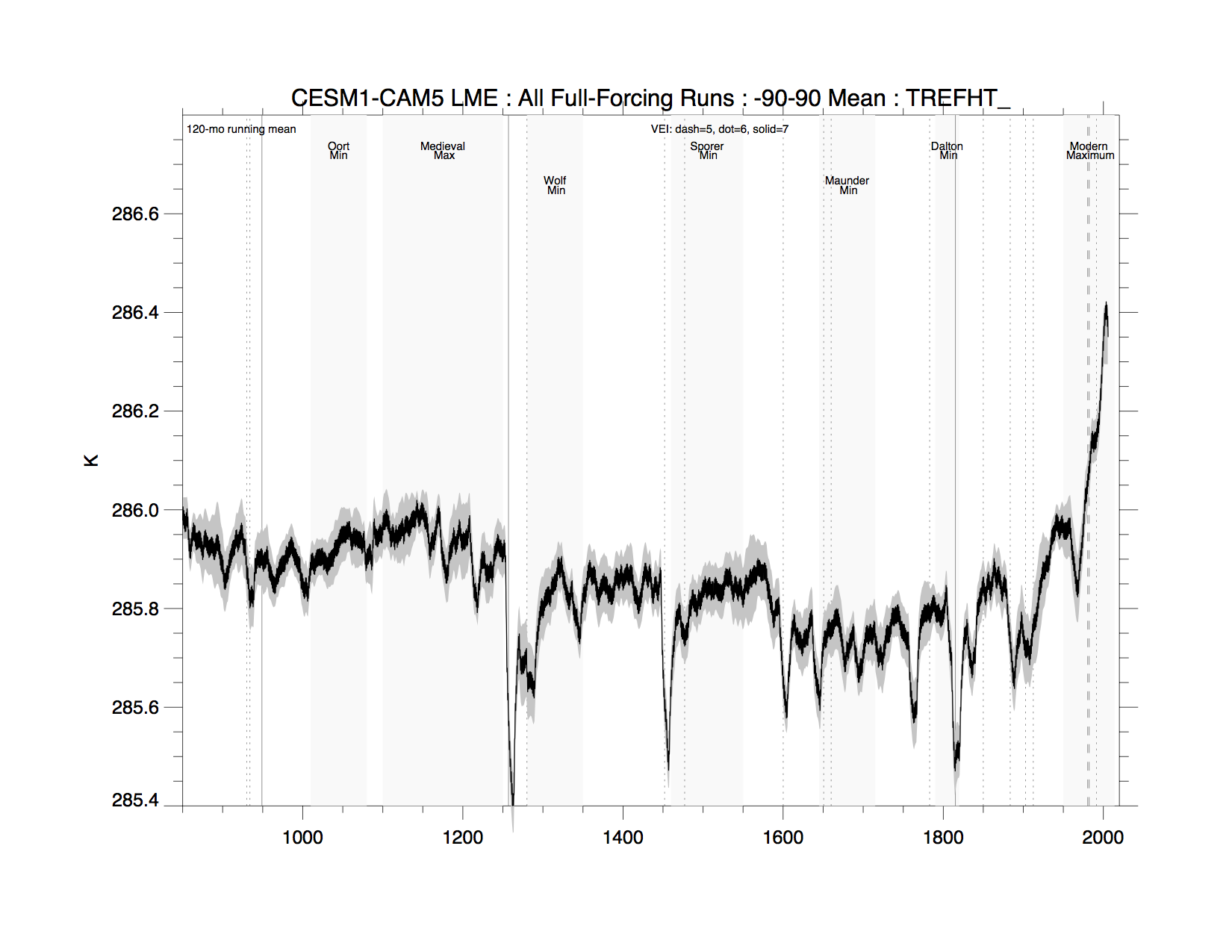CESM-LME | Data Subset Distribution Page
The CESM Last Millennium Ensemble (LME) produced at NCAR's Climate Change Research Section is an ensemble of fully-forced, and single-forced, simulations spanning 850 to 2100 C.E.; documentation is provided for these simulations in a recent paper in the Bulletin of the American Meteorlogical Association (BAMS, Otto-Bliesner et al. 2015). The extensive archive can be downloaded directly from the Earth System Grid . For users desiring quickly accessible metrics of climate change and variability, useful resources includine the NCAR Climate Variability Diagnostics Package and the following data subsets.

| Global Mean 2m Temp | Data : Images (L+O/O/L) | Global Mean Precipitation | Data : Images (L+O/O/L) |
| NH Mean 2m Temp | Data : Images (L+O/O/L) | NH Mean Precipitation | Data : Images (L+O/O/L) |
| SH Mean 2m Temp | Data : Images (L+O/O/L) | SH Mean Precipitation | Data : Images (L+O/O/L) |
| Central England 2m Temp | Data : Image | Central England Precipitation | Data : Image |
When presenting results from the NCAR LME, please acknowledge it in either oral or written form and if possible cite:
To download the CVDP software package please refer to the Code page.
When presenting results from the CVDP, please acknowledge it in either oral or written form and if possible cite:
CVDP collaborators: Adam Phillips, Clara Deser, John Fasullo, Steve Yeager, Dennis Shea, Rick Brownrigg as well as other members of NCAR's Climate Analysis Section.
For more information on observational datasets and climate indices, see the Climate Data Guide.
Development of the CVDP was funded in part by NOAA grant #NA12OAR4310087.
CESM Project
The Community Earth System Model (CESM) is a fully-coupled, global climate model that provides state-of-the-art computer simulations of the Earth's past, present, and future climate states.
CESM is sponsored by the National Science Foundation (NSF) and the U.S. Department of Energy (DOE). Administration of the CESM is maintained by the Climate and Global Dynamics Laboratory (CGD) at the National Center for Atmospheric Research (NCAR).

